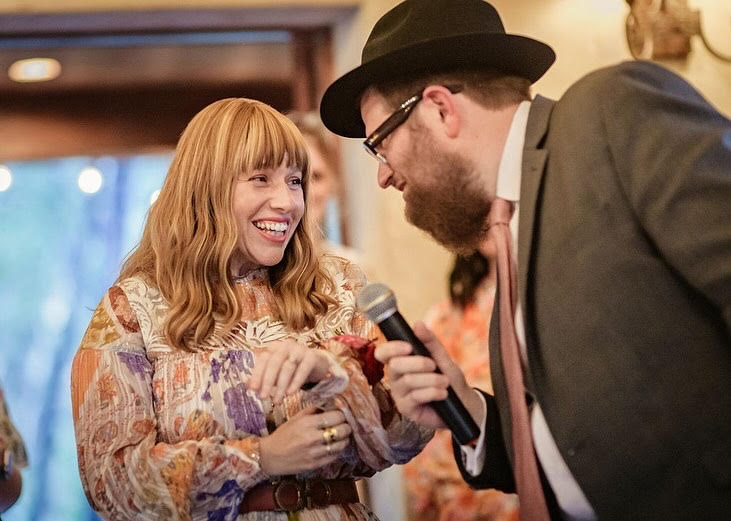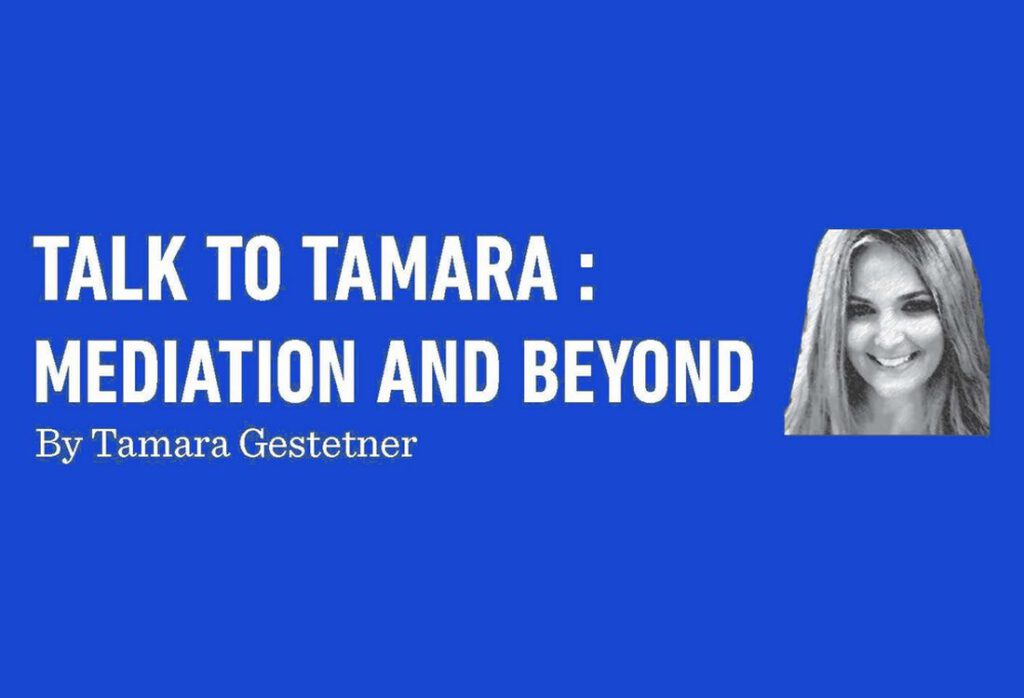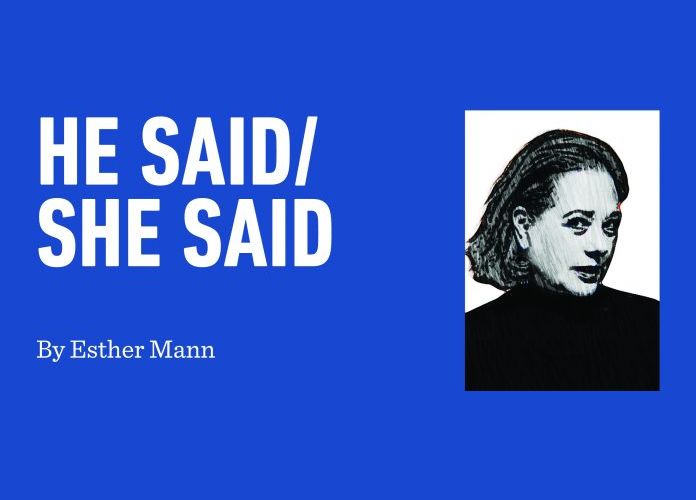Musings Of A Shliach From Montana
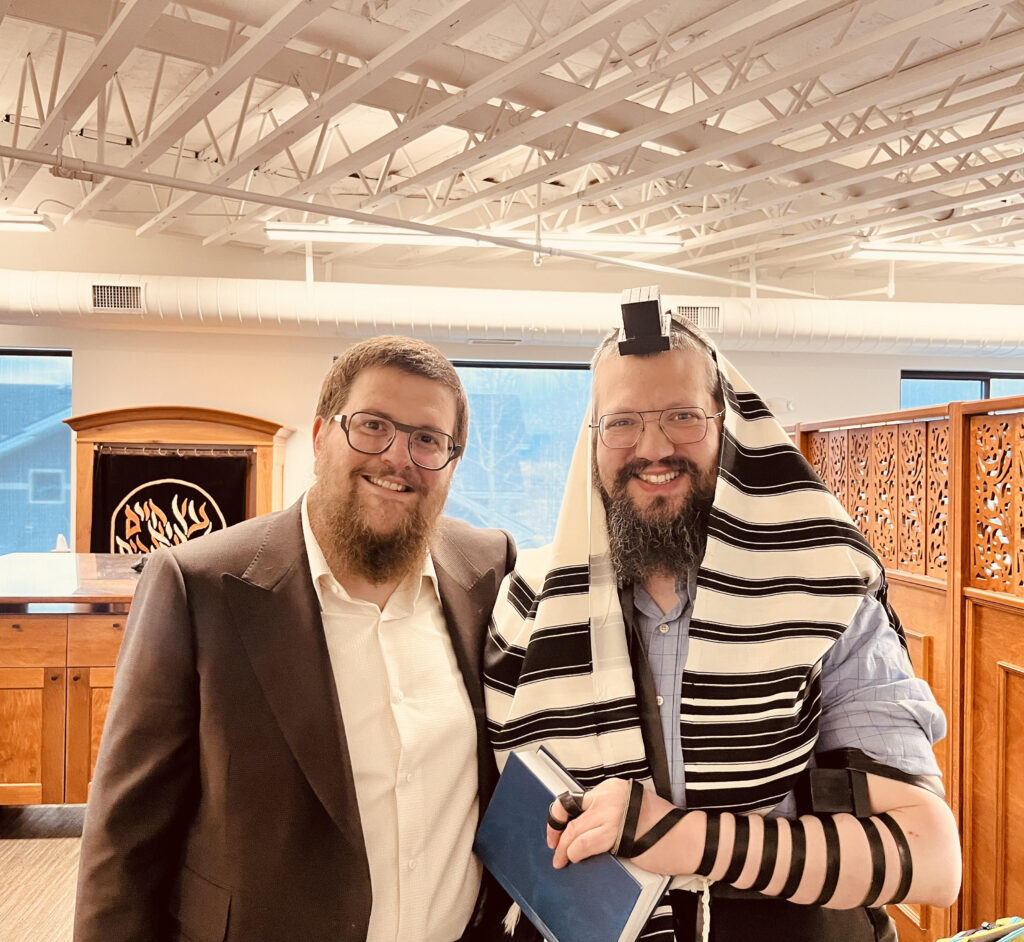
Rabbi Chaim and Author Dovid Zaklikowski in the Bozeman shul
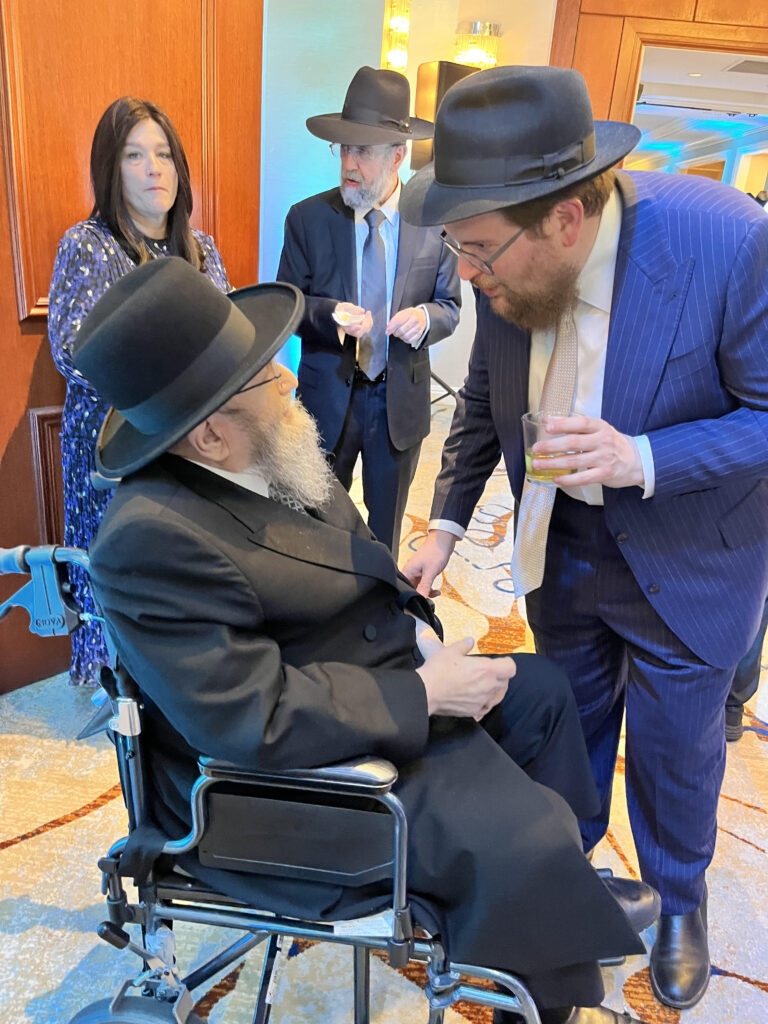
Rabbi Chaim with Rav Reuven Shlit”a at the Bar Mitzvah
Recently, I started reading Douglas Murray’s new book “On Democracies and Death Cults: Israel and the Future of Civilization.” It’s heartbreaking to read the individual stories of October 7 and the failures of the Israeli government that led to this horrific incursion into Eretz Yisrael. I believe that history will look back and see Douglas as a heroic journalist, telling the untold stories and hard truths about Arab barbarism. Like Steven Spielberg did with the USC Shoah Foundation and the interviews with Holocaust survivors, Murray is documenting what the Hamas Nazis, Yemach Shemam, did on Simchas Torah to the Jews so the world does not forget, as much as they try.
It’s important to study history, to hear, read, and internalize stories of the past because the experiences of the past can help bring people together, make us more cohesive, and remove so much of the “made up” divisions between us.
Two weeks ago, Author Dovid Zaklikowski showed up in Bozeman with his family. They were traveling to Yellowstone and then Salt Lake City where he was being awarded for his excellence in writing. While Dovid has written many types of books, including advice given by the Rebbe, zt’l, what I love most about his decades of work are the biographies of Torah personalities from generations past. Their stories are fascinating, eye-opening, inspiring, and illuminating. People like Rabbi Menachem Shmuel David Raichik (1918 – 1998) of Los Angeles, Rabbi Berel Levy of OK Kashrus, Rebbetzin Shula Kazen, the “Queen of Cleveland,” and many others.
In this week’s double parashah, Acharei-Kedoshim, we read about the mitzvah of Ahavas Yisrael, to love our fellow Jews. We also read about many other interpersonal mitzvos, like the prohibitions against hatred, grudges, revenge, and so on. Love isn’t an easy mitzvah to implement, but it’s vital for the survival of the Jewish people. So often the greatest machlokes, gossiping, and quarreling among human beings can be found in our Jewish communities. The Torah forewarned us that how we treat our fellow man is foundational to what it means to be a healthy and holy Yid. We can’t daven Shemoneh Esrei while shaking our whole body, waving our hands for all to see, and then sow division among Klal Yisrael.
In our generation there has been a great correction in the unity of our people, and it’s a marvelous sign of progress. While we once lived in our own bubbles, today the Jewish people are more united than ever. I kind of feel like a big breakthrough in this realm came when Reb Sholom Mordechai Rubashkin was being persecuted and we all saw the blatant Jew-hatred for what it was. We came together as one community to pray, intercede, and bring about his redemption. From Yated Neeman to Five Towns Jewish Times, from Ami to Matzav, we were all in this together. Rav Yerucham Olshin and the Satmar Rav from Kiryas Yoel, Rabbi Levi Shemtov in D.C. and Rabbi Pinchos Lipschutz, shluchim in rural America and bachurim at BMG, we all left the bubble and focused on our unity.
I spent the summers of 2000 and 2001 as a counselor in Camp Gan Israel in Manalapan, New Jersey under the incredible leadership of the Chazanow and Bernstein families. While we worked in Manalapan during the day, we lived in a few rented apartments in Lakewood. Back then, having Lubavitchers in Lakewood was like having a fish out of water. Kids would look at us on the street like we were from another planet. Back then, going to the mikvah in the morning before davening was a novelty reserved to a few Lubavitcher “fanatics” and to Rav Matisyahu Salomon, z’l, but today everyone has a home in Lakewood and there are so many men’s mikvahs to choose from. When I was growing up, there weren’t any decent kosher eateries in Crown Heights, and today Jews come from across the Five Boroughs to dine there. Our Jewish world got smaller. We are much closer to each other than ever before.
My wife Chavie is an exceptional shlucha and all-around amazing person. Back in September, she launched her podcast, Totally Unexpected, and Baruch Hashem her audience keeps growing. She also has a great Substack page, and I highly recommend that everyone follows both her platforms as maybe they will inspire you and possibly even help change your life. Chavie interviewed many wonderful and interesting people, from Mendel Zirkind on astrology to Sheva Givre on raising a child with Down Syndrome, and even our daughter Shoshana and her unique life journey, as well as Malka Groden who, like us, has adopted children. The conversations on Totally Unexpected are, like Chavie, deep, thoughtful, and introspective. More than anything else, these conversations remove many of the man-made boundaries and divisions that exist among us.
The unity doesn’t minimize the uniqueness of each community in Klal Yisrael. Every chevra has their principles, their minhagim (customs), and their approach, but the door is open between our groups, allowing us to learn from each other, celebrate each other, and of course treat each other with respect and dignity. The stories we learn about other people break down the barriers and allow us to love our fellow Jews. It’s easy to hate someone when we don’t know them and they are a mere caricature; it’s a lot harder to hate them when we know they are a fellow Yid, a real human being with a heart that feels and a brain that thinks.
Last week, a fellow popped into my Chabad Center without an appointment and was looking for the rabbi who he watches on “YouTube.” Tim isn’t Jewish; he lives in Sequim, Washington on the Olympic Peninsula, but he believes that his grandfather may have been a Jew. Tim has now left organized Christianity to embrace Jewish learning, but he still believes in the Christian savior. Listening to the story of his journey and the kind words he shared about Rav Moshe Kletenik of the Seattle Vaad (who helped him with kosher hashgachah on cheese products he produced), was fascinating. Stories make people real.
It is told that one Yom Kippur, at the shul of the Vilna Gaon, the heat was unbearable due to the number of congregants and the many candles lit for Yom Kippur. The Chayei Adam, Rabbi Avraham Danzig, asked someone to open a window to cool the room down. When someone said, “The wind might extinguish some of the candles,” the Chayei Adam responded, “May one thousand candles of wax be extinguished as long as not one soulful candle, one congregant, G-d forbid be extinguished.”
Human beings aren’t inanimate objects; we aren’t statues without feelings and beating hearts. Each person is a gem, certainly at the soul level, and every person has a story. Sometimes it’s a story of triumph, while other times it’s a story of tragedy. Some stories uplift us while others bring us down. Some stories give us perspective while others shock us to the core. But every story must be heard so we can attempt to understand and humanize those around us. Last week while attending a bar mitzvah in California, I had the zechus to meet Rav Reuven Feinstein, shlita, and I immediately asked him some questions about his father, Rav Moshe Feinstein’s relationship with the Rebbe. I wanted to learn more about the past, about great and ordinary people, because it makes our world more understandable.
A few weeks ago, a 99-year-old Crown Heights matriarch, Mrs. Taibel Brod, tragically passed away after being hit by a car. Mrs. Brod was born in Kremenchug, Ukraine and raised in a home steeped in mesiras nefesh. Her father, Reb Yitzchok Dovid Halevi Gurchover, was a proud student of Tomchei Temimim, who risked his life to perform shechitah and bris milah. During the war years, he fled to Siberia where he worked tirelessly to establish a mikvah and shul for the local Yidden. After the war, in the Poking DP camp in Germany, Taibel married Rabbi Chatzkel Brod. A few years later, they made their way to Brooklyn where they raised their family, and where, with the Rebbe’s berachah, Chatzkel opened a butcher shop, meriting among his customers, the Rebbe and Rebbetzin themselves. Taibel Brod is an example of perseverance and dedication, and more often than not, the stories about people like Taibel blow me away.
This past Shabbos I was reading memories written by Chatzkel in his book, “Chassidic Light in the Soviet Darkness,” available from Kehot Publication Society, and he shares the following:
After attaining our forged Polish passports and escaping Ukraine with the Chabad operated “escape from Russia” undertaking, we spent our first Shabbos in Krakow where we had to endure the antisemitism of the Poles, which was no better than the hatred of the Nazis. As we walked to Minchah we passed a group of Polish wagon drivers, when they started coming after us with their crops, we ran and hid…Not sure we would survive had they caught up to us…we were warned not to talk Russian, as we were “Poles,” so if we were asked anything we answered in Hebrew…some illiterate Jews who were with us knew no Hebrew, so when asked questions, they would respond with the words of the Friday night Lecha Dodi prayer…
I am sharing this not only because I love the Lecha Dodi story, but because I grew up with Reb Chatzkel Brod. He and my father would always have friendly conversations on the street, yet I never knew his incredible story, and that of his wife, Taibel. I feel like we need to do better, to learn and listen to the stories of previous generations because it can change our perspective for the better and help us forge better ties between communities, fostering communication, connection, and even love. n
Rabbi Chaim Bruk is co-CEO of Chabad Lubavitch of Montana and spiritual leader of The Shul of Bozeman. For comments or to partner in our holy work, e-mail [email protected] or visit JewishMontana.com/Donate.





